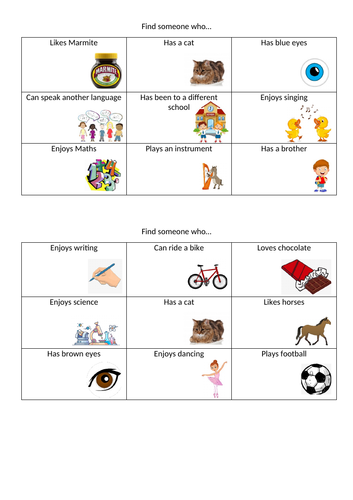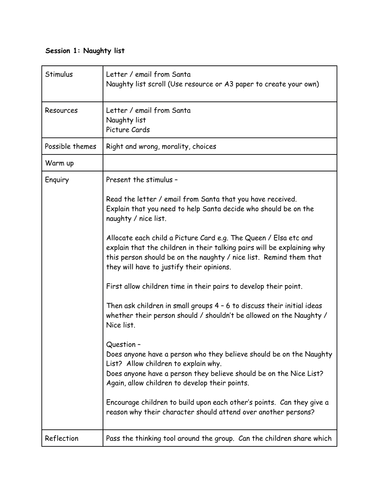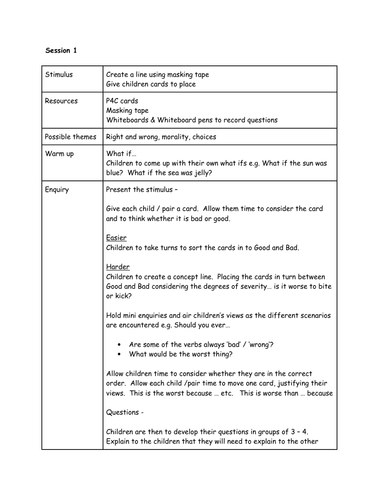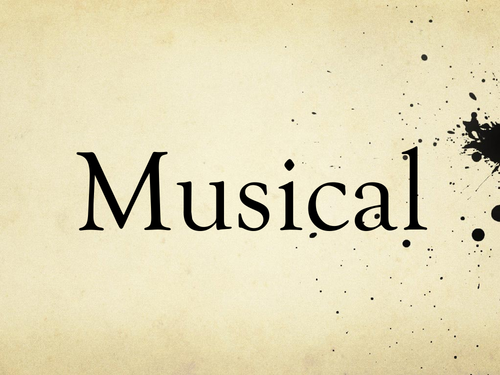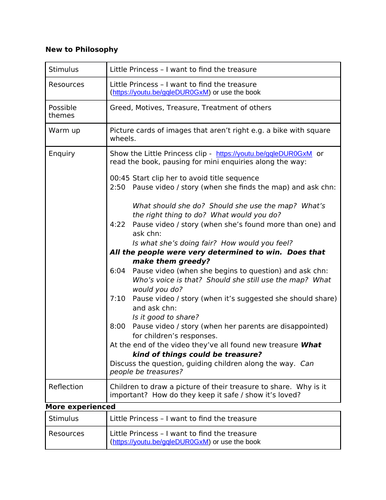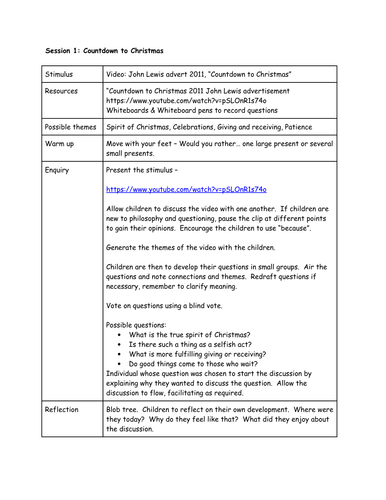64Uploads
49k+Views
8k+Downloads
Whole school

Meet the Teacher Morning - Get to know you BINGO - Perfect icebreaker activity
A fun BINGO game to play on Meet the Teacher Morning or as an icebreaker with your new class. The children fill the grid by finding other children who meet the criteria. There are 6 different BINGO sheets to add a more competitive nature as the children try to fill their board first.
A word document and PDF file are included.

P4C (Philosophy for Children) Christmas Themed Naughty List Enquiry
Here is an outstanding Christmas themed lesson plan with stimulus and resources encouraging children to develop their reasoning skills. The resources can be used as a stimulus for P4C (Philosophy for Children) lessons or to structure a class discussion.
The children are responsible to decide which people / fictional characters / fairytale characters (depending on age / experience) should be included on Santa's Naughty / Nice list.
The stimulus is intended to guide the children to a discussion on rights and wrongs, consequences, behaviour, responsibility and choices.
The activity will support the children to improve their critical thinking and discussion skills in a fun way. The themes are easy to access for students of all ages as their moral topics make them relevant for children (or adults) with a range of life experiences.

P4C Concept line activity GOOD and BAD
A structured enquiry with resources and plan to facilitate a discussion about Good and Bad. The plan includes a warm up, resources, structure and possible questions to lead a fun filled, child led session.
The activity has a differentiated activity (easier) perfect for EYFS or those newer to philosophical thinking and a concept line activity for those in Year 3 upwards / more confident with philosophical thinking.

Outstanding P4C (Philosophy for Children) Christmas themed lesson
Here is an outstanding Christmas themed lesson plan with stimulus and resources covering the theme of morals. The resources can be used as a stimulus for P4C (Philosophy for Children) lessons or to structure a class discussion.
The lesson encourages the children to look at different scenarios and to place them on a line between Naughty and Nice. The children will use their reasoning skills to explain to their peers why they believe the certain point e.g. Lying to Santa Claus should go at a certain point on the concept line.
The stimulus is intended to guide the children to a discussion on rights and wrongs, consequences, behaviour, responsibility and choices.
The activity will support the children to improve their critical thinking and discussion skills in a fun way. The themes are easy to access for students of all ages as their moral topics make them relevant for children (or adults) with a range of life experiences.

Growth Mindset Learning Behaviour display
A learning behaviour display including clouds with positive learning behaviours e.g. creative, reflective, perseverant etc. Can be used to embed the growth mindset idea in a classroom. There are two versions of the display, one of which is editable to include your own vocabulary.
Balloon and hot air balloon templates are also included as a way to involve the children in their work. Could be used to decorate and include their own photo, and move to the relevant learning behaviour or to be used as a type of class contract that they have agreed to use the mentioned behaviours.

Acts of kindness advent calendar / generator
A PPT advent calendar which encourages and suggests children to complete a good dead for 24 days. Great as an advent calendar or as a PSHCE starter, where each child gets a new number.
A great way to teach children that being kind can be FUN and rewarding.

P4C - Music themed
Here is a lesson plan with stimulus and resources covering the theme of music. The resources can be used as a stimulus for P4C (Philosophy for Children) lessons or to structure a class discussion.
The lesson encourages the children to look at different sounds and to place them on a line between Musical and not musical. The children will use their reasoning skills to explain to their peers why they believe the certain point e.g. the bagpipes rather than bird song should go at a certain point on the concept line.
The stimulus is intended to guide the children to a discussion on music and our perception.
Also included is a link to a video showing a video which will generate the question, "What is music?"
The activity will support the children to improve their critical thinking and discussion skills in a fun way. The themes are easy to access for students of all ages as their moral topics make them relevant for children (or adults) with a range of life experiences.

P4C - Little Princes - Philosophy 4 Children for EYFS, KS1 & KS2 Topics - cheating, forgiveness
Here is a lesson plan with stimulus and resources covering the theme of cheating, forgiveness and motives. The resources can be used as a stimulus for Philosophy for Children (P4C) lessons or to structure a class discussion.
The stimulus for this session is from the popular children’s story the Little Princess, which is in most school libraries or can be viewed as a television adaptation (YouTube link included).
This pack includes two differentiated lessons plans - one for those new to P4C, which contains many stopping points to develop the children’s reasoning, and one for children who are more experienced and are beginning to / have experience developing their own questions.
The activity will support the children to improve their critical thinking and discussion skills in a fun way. The themes are easy to access for students of all ages as their moral topics make them relevant for children (or adults) with a range of life experiences.

P4C (Philosophy for Children) - Countdown to Christmas John Lewis advert enquiry
Here is an outstanding Christmas themed lesson plan with links to video stimulus. The resources can be used as a stimulus for P4C (Philosophy for Children) lessons or to structure a class discussion.
The stimulus is intended to guide the children to a discussion on giving and receiving, selflessness, thinking of others, responsibility and choices.
The activity will support the children to improve their critical thinking and discussion skills in a fun way. The themes are easy to access for students of all ages as their moral topics make them relevant for children (or adults) with a range of life experiences.

